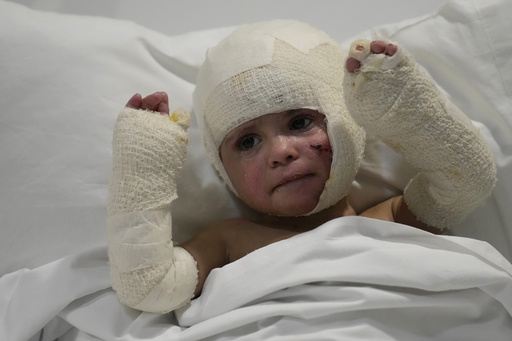
BEIRUT — The ongoing conflict between Israel and Hezbollah is having a significant impact on Lebanese civilians, particularly those from the Shiite Muslim community. Many within this group feel they are being unjustly targeted simply because of their shared religious identity with the militants of Hezbollah and their proximity to areas heavily associated with the group.
One resident, Wael Murtada, a young Shiite man, expressed his frustration while watching paramedics sift through the debris of his uncle’s two-story home, which was recently destroyed in an Israeli airstrike that also claimed the lives of ten individuals. He questioned, “Who else is being attacked?” illustrating the widespread sentiment among Shiites that they are suffering disproportionately from the conflict.
Israeli military actions have predominantly focused on the south and northeast regions of Lebanon, particularly neighborhoods adjacent to Beirut, where many Hezbollah operatives reside. While the Israeli government claims that its operations target only Hezbollah members and not the Lebanese populace or the Shiite faith, these assertions resonate little with civilians like Murtada, as casualties among Shiite families rise.
The Shiite community’s experience of devastation is not limited to loss of life; entire neighborhoods in the coastal city of Tyre have been obliterated. Significant historic sites, such as the market in Nabatiyeh and the iconic Hotel Palmyra in Baalbek, have suffered severe destruction. Mohanad Hage Ali, a senior fellow at the Carnegie Middle East Center, described the situation as collective punishment for Lebanese Shiites, noting the obliteration of their urban areas and cultural landmarks.
As more Shiites flee their devastated localities, the ramifications of the conflict are spreading into other regions of Lebanon, heightening sectarian tensions. Recently, Israeli airstrikes have also impacted Christian, Sunni, and Druze communities that have offered refuge to displaced Shiites. This has created a chilling effect on residents who may hesitate to shelter those displaced out of fear they might have connections to Hezbollah.
Wassef Harakeh, a lawyer from the southern suburbs of Beirut, asserted that Israel’s strategy appears to be aimed at creating divisions within Lebanese society, which has a complicated history of sectarian conflict. His office was destroyed in an Israeli airstrike, highlighting the widespread collateral damage resulting from military operations.
Within the Shiite community, there are growing concerns regarding the Israeli military’s rhetoric and its implications. Historical doctrines, such as the Dahiyeh doctrine—an operational strategy that permits targeting civilian areas associated with Hezbollah—have led to fears that civilians are being unfairly portrayed as legitimate military targets.
A recent video from an Israeli military spokesperson further fueled suspicions, as he described an unnamed southern Lebanese village as a “terror base,” indicating that Hezbollah’s presence conflates the distinction between militants and civilians. Despite this, another Israeli army spokesperson emphasized that the conflict aims to dismantle Hezbollah, rather than disrupt the civilian population.
Many Lebanese people, including Shiites, also express frustration towards Hezbollah, linking the group’s aggressive actions to their suffering, particularly following the escalation of rocket attacks into Israel after Hamas initiated conflict last year. Since the onset of this confrontational period, reports indicate over 3,500 fatalities in Lebanon, with a significant number being women and children. The Shiite community, comprising roughly one-third of Lebanon’s population, has borne the heaviest casualties.
Crucial shifts in the conflict occurred in mid-September as Israeli airstrikes intensified, targeting the leadership of Hezbollah. Initial airstrikes predominantly focused on combatants, but as the conflict has progressed, they have increasingly resulted in destruction of civilian infrastructure and collateral damage.
A particularly devastating airstrike on September 23 led to the death of nearly 500 people, prompting mass displacement among Lebanese. Following such destruction, Murtada’s relatives relocated to a Druze village near Baalbek, only to experience tragedy again when their temporary residence was subsequently targeted in an airstrike, resulting in the loss of several family members.
Despite Hezbollah’s longstanding claims of being a deterrent against Israeli aggression, its position has weakened amid this warfare, raising concerns within the Shiite community about political marginalization post-conflict. Nevertheless, some believe this challenging period may allow for the emergence of more diverse political expressions within the Shiite demographic.
Recent developments suggest that negotiations aimed at ceasing hostilities between Israel and Hezbollah may have begun to gain traction. Critics of Hezbollah claim that the group could have accepted proposed ceasefire conditions earlier, potentially avoiding massive destruction and losses for Lebanon, as articulated by legislator Waddah Sadek.
